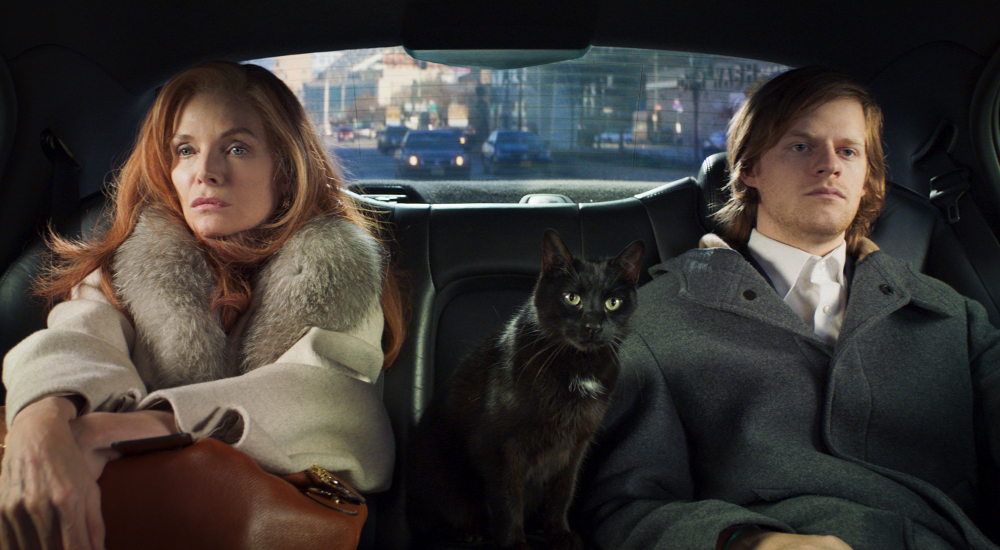Score: B+
Director: Azazel Jacobs
Cast: Michelle Pfeiffer, Lucas Hedges
Running Time: 110 Minutes
Rated:
"My plan was to die before the money ran out."
In the world of cinema, Michelle Pfeiffer is an undisputed icon. Her decades-long career includes some of the most extraordinary characters ever to grace the screen. So, when I say that her work as Frances Price in Azazel Jacobs' French Exit may be her best -it's a statement that gets your attention.
The film, a simple and honest tale, centers on Frances, a 60-something Manhattan socialite who has just learned that her inheritance has run out. While she is allowed to keep the name, the money her husband, twelve years deceased, left her, is gone.
From the onset, Pfeiffer lights up the screen. Her actions, always deliberate, craft a character that is equally confident and uncertain. She talks with incredible poise, often using her words and delivery to control a situation. She rescued her son from his school when he was twelve and discovered her husband, dead, in their bed and chose to continue and complete her vacation before alerting the authorities.
At one point, after leaving a party early, she confronts a homeless man in the park, curious as to what he will do with the money if she feels the calling to give him any. She has just learned of her penniless stature; money should be a great concern to her. But she hands over a twenty, satisfied with the man's implied use. This theme continues throughout much of the film. Plagued with limited finances, Frances appears to have no real understanding of her situation.
That stance only intensifies when she boards a cruise ship with her son, Malcolm (Lucas Hedges), and cat -who may or may not be embodied by her late husband. The extravagant travel arrangements to a borrowed apartment in Paris showcase the life Francis is accustomed to living, further personifying that she, along with her son, rarely doesn't get what she desires. In that same context, outside of the cigarette and martini glass, Francis rarely engages those on board. Many would assume that she feels above her counterparts; however, her distance here clashes with her life in New York.
During their voyage, Malcolm connects with Madeline (Danielle Macdonald), a gypsy who possesses the unique ability to tell when someone is near death. Malcolm is drawn to her energy, naturally pursuing the most unusual spirit in the room. This interaction is most interesting because Malcolm is engaged to a girl (Imogen Poots) back home. Francis' unawareness of the situation showcases her parenting style, further cementing their unique and tangled relationship that struggles to represent anything remotely close to normal.
In a way, their botched connection is what gives the film its unique and slightly offbeat tone. Distant from any form of reality, the mother-son relationship is built on a fractured foundation that mixes sophistication with delusion, curating a bond that bears a sense closer to friendship.
Once in Paris, the duo (along with their cat) embrace the European lifestyle. Again, money appears no object as they walk around town, overpaying for coffee, overtipping a helping hand, and quite literally throwing money at a man with whom Francis saw mistreated by the police. It's a painful visual that intensifies with an awkward exchange between the two. Credit Pfeiffer here. Baring her soul, she beautifully captures the heartache and torment within a spirit that feels as it's lost its compass. Her screams for understanding are absent, her wishes to live within herself a top priority, even as a new "friend," Mme Reynard (Valerie Mahaffey), enters the fold.
When her cat runs away, Frances hires a private investigator, wanting to bring a sense of closure to the likelihood that her late husband's soul rests within his body. Here, French Exit deviates a bit, losing its footing and succumbing to its lead character's ridiculousness. But the moment pushes the narrative further, bringing Francis' situation into full view as we gain a better understanding of her inner workings.
Once in Paris, much of the film moves seamlessly in a balanced fashion, Frances spending the last revenants of her fortune, Malcolm directionless by every means of the word, attempting to co-exist alongside his mother. In that regard, French Exit feels, at its core, very much like a French film.
As inhabitants crowd the once spacious apartment and storylines become muddied in complexity and reason, one must step back and take in the bigger picture. While the final scene is a bit of a mystery, in reality, its eventuality has starred us blankly in the face from the very beginning.

